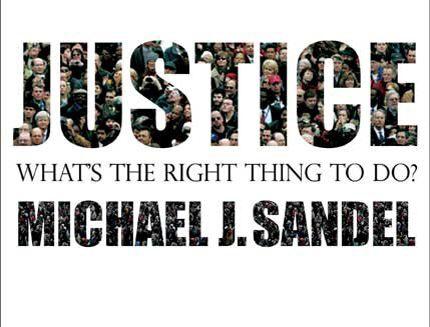It has been a long time since I’ve done a Book Briefs blog, and I have a backlog of books to mention. Stay tuned in the next week or so for my Best Books of 2019.
For today, here are more than a dozen books I’ve read (somewhat) recently in several different categories.
Church History
I enjoyed Allan Kreider’s book The Patient Ferment (Baker Academic, 2016) on the rise of Christianity in the Roman Empire. At times I wondered if Kreider’s Anabaptist tradition was leading him to downplay the importance of doctrine. But on the whole the book is a needed corrective and countercultural reminder that the secret of the early church was patience more than strategy.
With everything written on the Puritans, it is still difficult to find a scholarly history of the movement that covers both sides of the Atlantic. Michael Winship’s book Hot Protestants: A History of Puritanism in England and America (Yale, 2018) fills this gap admirably, even if I found the tone a bit snarky at times.
Early Modern History
I’ll be teaching an elective class at RTS next semester on the Enlightenment, and so I’ve been on the lookout for an accessible introductory volume. I’ve opted for Gertrude Himmelfarb’s The Roads to Modernity (Vintage Books, 2004). I appreciate her categories: the British Enlightenment as the sociology of virtue, the French Enlightenment as the ideology of reason, and the American Enlightenment as the politics of liberty.
John Robertson’s The Enlightenment: A Very Short Introduction (Oxford University Press, 2015) is also good, but (surprisingly, given the title) tries to cover more ground than Himmelfarb and presumes more knowledge of Enlightenment figures and texts. Most people believe that human rights came from Enlightenment philosophy.
John Witte Jr provides a well-researched rebuttal to this assumption in The Reformation of Rights (Cambridge University Press, 2007), arguing that the core ideas of human rights and constitutional protections were formulated by Calvinists in the two centuries leading up to the American Revolution.
In a similar vein, Mark David Hall makes a compelling case for the seminal influence of the Bible and the Christian faith in Did America Have a Christian Founding? (Nelson Books, 2019).
Politics and Culture
I spent a good chunk of my free time over the summer reading these next two books. George Will’s The Conservative Sensibility (Hatchette Books, 2019) is a brilliant and flawed book. Will, a Princetonian, argues that the political vision of James Madison in the 18th century was undone in the 20th century by another Princeton graduate, Woodrow Wilson. Even many sympathetic readers, however, will not agree with Will’s insistence that the conservative sensibility does not depend upon religion or a belief in God.
Less philosophical and more journalistic is Tim Alberta’s detailed and even-handed book American Carnage: On the Front Lines of the Republican Civil War and the Rise of President Trump (Harper, 2019). Coming in at more than 600 pages, Alberta’s well-written chronicle requires a high level of interest in the political machinations of the Republican Party from 2008 to 2018. But if that’s your cup of tea, you won’t be able to put the book down.
Mary Eberstadt provides another provocative analysis of our cultural moment in Primal Screams: How the Sexual Revolution Created Identity Politics (Templeton Press, 2019), arguing that more and more people are finding their identity in figurative tribes because they no longer have literal families and communities to give shape and meaning to their lives.
Almost all readers of this blog will have heard something about Critical Race Theory. And yet, most often our knowledge is superficial and second hand. Critical Race Theory: An Introduction (New York University Press, 2017) by Richard Delgado and Jean Stefancic is a brief and accessible introduction by two leading proponents of CRT. The gist: “Unlike traditional civil rights discourse, which stresses incrementalism and step-by-step progress, critical race theory questions the very foundations of the liberal order, including equality theory, legal reasoning, Enlightenment rationalism, and neutral principles of constitutional law” (3).
Theology and Ministry
Christians asking the question, “How should I think about politics?” would benefit from Christ and the Kingdoms of Men: Foundations of Political Life (P&R, 2019) by David Innes. While I didn’t agree with everything (e.g., I’m less Kuyperian and see more Christian underpinnings to Enlightenment ideas), this is a thoughtful and useful introduction to the purpose and place of government.
Richard Chin is the national director of the Australian Fellowship of Evangelical Students and a good friend. More importantly, he is careful with the Bible and explains is clearly. His new book, Captivated by Christ: Seeing Jesus Clearly in the Book of Colossians (Matthias Media, 2019), would make an excellent devotional or small group resource.
I’m always looking for books that can help me improve as a preacher. Alex Motyer’s Preaching: Simple Teaching on Simply Preaching (Christian Focus, 2013) is one of those books. Motyer offers lots of practical advice so that even if not everyone can be a good preacher, no one need be a bad preacher (9).
I love the design, look, and feel of Harold Senkbeil’s The Care of Souls: Cultivating a Pastor’s Heart (Lexham Press, 2019). As a longtime Lutheran minister, Senkbeil’s work is, not surprisingly, decidedly Lutheran, with distinctive views on the law, absolution, and baptismal regeneration. And yet, Senkbeil writes with a pastoral wisdom that we need to hear, reminding all of us that to be a minister is to fulfill a holy calling in service of God’s holy people.



